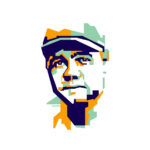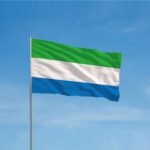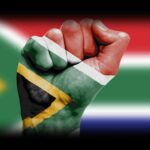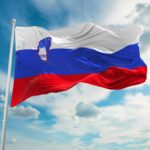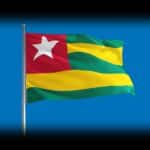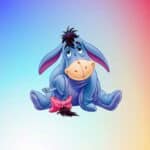Freedom Day is an annual celebration held on April 27 in South Africa. The day reminds South Africans of the immeasurable sacrifices made by individuals and nations to break them away from the chains of unjust segregation by a selected few. It reminds them of the efforts of their national heroes, particularly Nelson Mandela. He is regarded as a champion of freedom, not only in South Africa but the entire world. It is a day that not only marks the emancipation of South Africans from apartheid but also returned their essential human rights in 1994.
History of Freedom Day (South Africa)
Following the abolition of the decades-long segregation in South Africa, Freedom Day was marked on April 27, 1994, as a multiracial election. Until then, basic human rights and privileges were denied to black South Africans by the few ruling Whites. From then on, April 27 became a symbol of freedom for South Africans. It also commemorates the efforts of national heroes like Nelson Mandela. The struggles and sacrifices of Mandela, other key figures like Desmond Tutu, and many others, brought South Africans the freedom they were long deprived of in their land.Apartheid was a racial system in South Africa that separated the races between 1948 and 1994. During this period, the white minority was so powerful that the black majorities were overshadowed in their homeland. There were segregation systems imposed in almost every aspect of life. For example, interracial friendships and intermarriages were banned. Blacks were denied access to most social amenities. They could not live in areas specially designated for the Whites, and they couldn’t partake in national decision-making, especially in voting.Apartheid laws grouped South Africans into four groups — whites, blacks, colored, and Indians. Of all these groups, the whites enjoyed special privileges. The rest were deprived of their most basic rights. Over three million blacks were sacked from their homes between 1960 and ’83. In the 1970s and ’80s, opposition against the apartheid regime transitioned into militancy. This led to crackdowns on the ‘rebels’ and arrests by the National Party government. Between the late 1980s and early 1990s, the black people’s party — the African National Congress (A.N.C.), entered into negotiations with the government to end apartheid. The regime began to wane in 1991 and multiracial elections were held in 1994.
Freedom Day (South Africa) timeline
The iconic anti-apartheid revolutionary leader is born.
A racial social policy is established to govern the nation and its people.
Nelson Mandela is released from prison by President F. W de Klerk amidst internal and external pressures.
The success of Mandela in the presidential election automatically abolishes apartheid, ushering in a system of fair treatment for all South Africans.
Freedom Day (South Africa) FAQs
Why do we celebrate Freedom Day in South Africa?
Because it reminds us of the long walk through the dark, hard days and charges us to be united. It redoubles our efforts towards the actualization of transforming South Africa into a safe and sound democratic environment, where the rights and privileges of people count.
Does South Africa have an Independence Day?
Yes. Freedom Day is also regarded as Independence Day in South Africa.
How do we celebrate Freedom Day in South Africa?
There is no specific way of celebrating this day. While some families may choose to have special meals together, others may choose to do something entirely different. The goal is to make sure you share in the celebration of freedom.
How to Observe Freedom Day (South Africa)
-
Visit places of honor
Visiting key places in the fight for freedom is a good way to celebrate the day. Robben Island is a good example of such a place — it was the place where Mandela was held as a political prisoner. There are also museums and tours through areas important to the struggle against Apartheid.
-
Relish the moment
Freedom is all about being able to enjoy all the rights and privileges available to one without stepping on another's. Simply sit back and appreciate the freedom you are enjoying today.
-
Watch struggled-related movies
The best day to watch and get a glimpse of what happened during the years of segregation is by watching movies set in the period. Whoopi Goldberg's “Sarafina” tells some tales in the story. “Invictus” tells the story of how sport united the divided nation just after the first election.
5 Facts About Apartheid You Should Know
-
Embargo on properties
Black South Africans were denied ownership of properties.
-
Not supported by all whites
White people like Helen Suzman, Colin Eglin, Harry Schwarz, and Nadine Gordimer who won the Nobel Prize in Literature (1991), as well as many normal citizens, were all against apartheid.
-
Educational segregation
Whites had the best system of education which was strictly meant for them alone, with no blacks or mixed-race individuals having access to those facilities.
-
Rampant police brutality
Police were brutal and even opened fire on Black South Africans, killing scores and leaving many injured.
-
Passes required
Black South Africans were to move with passes and carry their passports to gain access to some facilities.
Why Freedom Day (South Africa) is Important
-
It abolishes injustice
The injustice and inhumane treatments evident in the apartheid regime were abolished on Freedom Day. The strength of such a day lies in not repeating the wrongs.
-
It commemorates heroes
It appreciates the struggles of heroes and freedom fighters who gave their all to set their people free. It also commemorates the white people who were also stuck in an unjust, harsh system and did not agree with it. That enables people across the racial divide to take hands and appreciate each other.
-
It is uniting
Freedom Day was the day all South Africans became equal. Love, compassion, resources, and other things began to be equally shared, thereby uniting all citizens under one single flag.
Freedom Day (South Africa) dates
| Year | Date | Day |
|---|---|---|
| 2023 | April 27 | Thursday |
| 2024 | April 27 | Saturday |
| 2025 | April 27 | Sunday |
| 2026 | April 27 | Monday |
| 2027 | April 27 | Tuesday |




